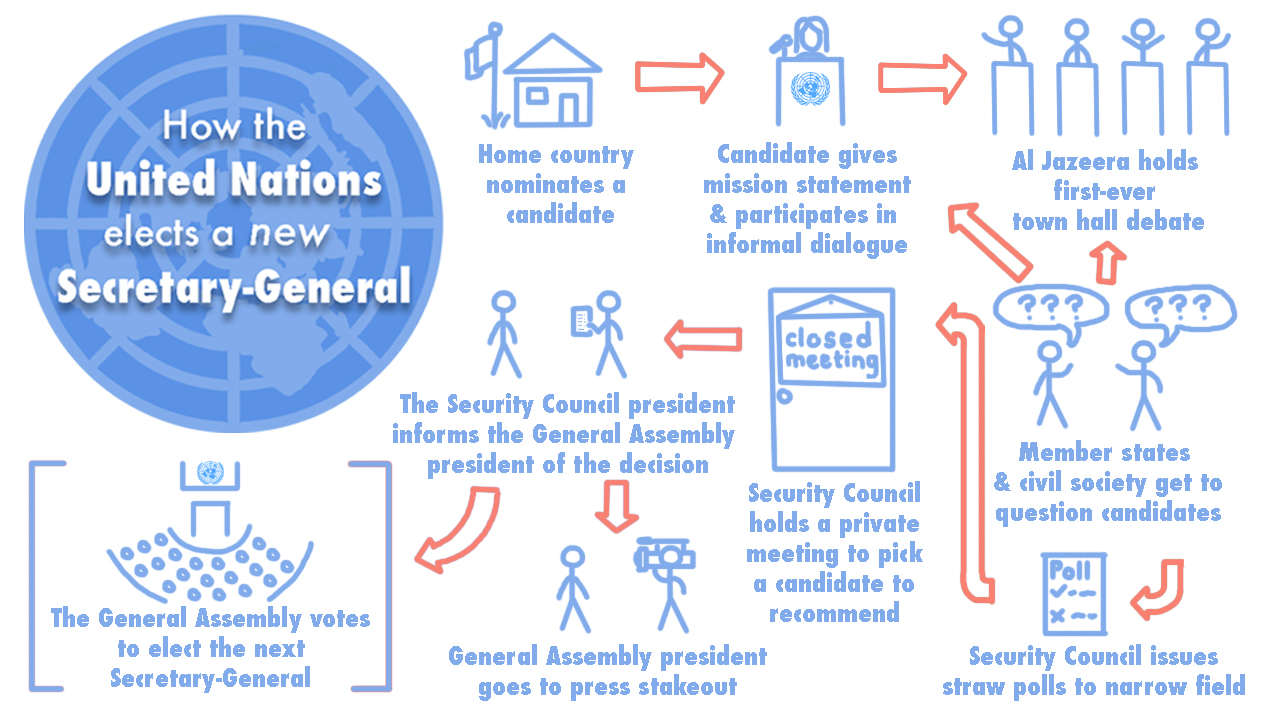The Election at the United Nations: Transitioning to Transparency

Electing a Secretary-General is nothing like electing an American president. There’s no popular vote. No electoral college. No daily coverage on CNN, or Fox News. And definitely no Twitter squabbles. That’s because the United Nations election usually happens behind closed doors.
While it’s still not getting mainstream coverage, this year is different.
For the first time, candidates were openly nominated and questioned by member states and civil society. That includes NGOs and the people they represent. These dialogues have been a major step in making the entire process more transparent. Candidates also participated in town hall debates. They were even asked if they thought the UN needed an outsider candidate.
“You mean, to make the UN great again?” said one candidate, prompting laughter from the crowd.
To date, there are 12 candidates - a field crowded enough to solicit memories of the Republican primary. But instead of comparing hand sizes on national television, the candidates for Secretary-General answered questions about Security Council reform.
“How does she see the evolution of a Security Council which has been struggling to reform itself for the past 20 years without success?” one delegate asked.
These informal dialogues have allowed ordinary people from all over the world to participate remotely. Members of civil society were invited to submit videos of themselves asking the candidates questions.
“How will you ensure that civil society participation is valued, and not further eroded?” asked Jane Alver, a Board Director at the WYCA of Australia.
Even though civil society now has a chance to question the candidates, it’s really up to the Security Council to make a recommendation. They put out straw polls and have a private meeting to pick a candidate to present to the General Assembly.
But, there’s a catch. 5 countries, known as the P5, have veto power. So if China, France, Russia, the US or UK object, the recommendation is a no-go. All five members have to agree on a candidate.
William Pace is the Executive Director of the World Federalist Movement and serves on the steering committee for 1 for 7 billion - a campaign advocating for more transparency in the election process. He says in past elections, the P5 has misused veto power by vetoing each others favorite candidate. This has caused the Security Council to recommend the most agreeable, rather than the most qualified, candidate.
“What’s happened in the past is the strongest candidates have been vetoed because they’re strong candidates. The P5 want to have a Secretary-General they can boss, they can give orders to according to their national priorities and national security interests, who won’t make waves, and who will appoint their nationals to run the UN,” he said.
Once they pass a resolution, the recommendation goes to the General Assembly. Whichever candidate the Security Council picks is pretty much guaranteed the job. But, all 193 member states have to vote to accept the candidate as the next Secretary-General.

